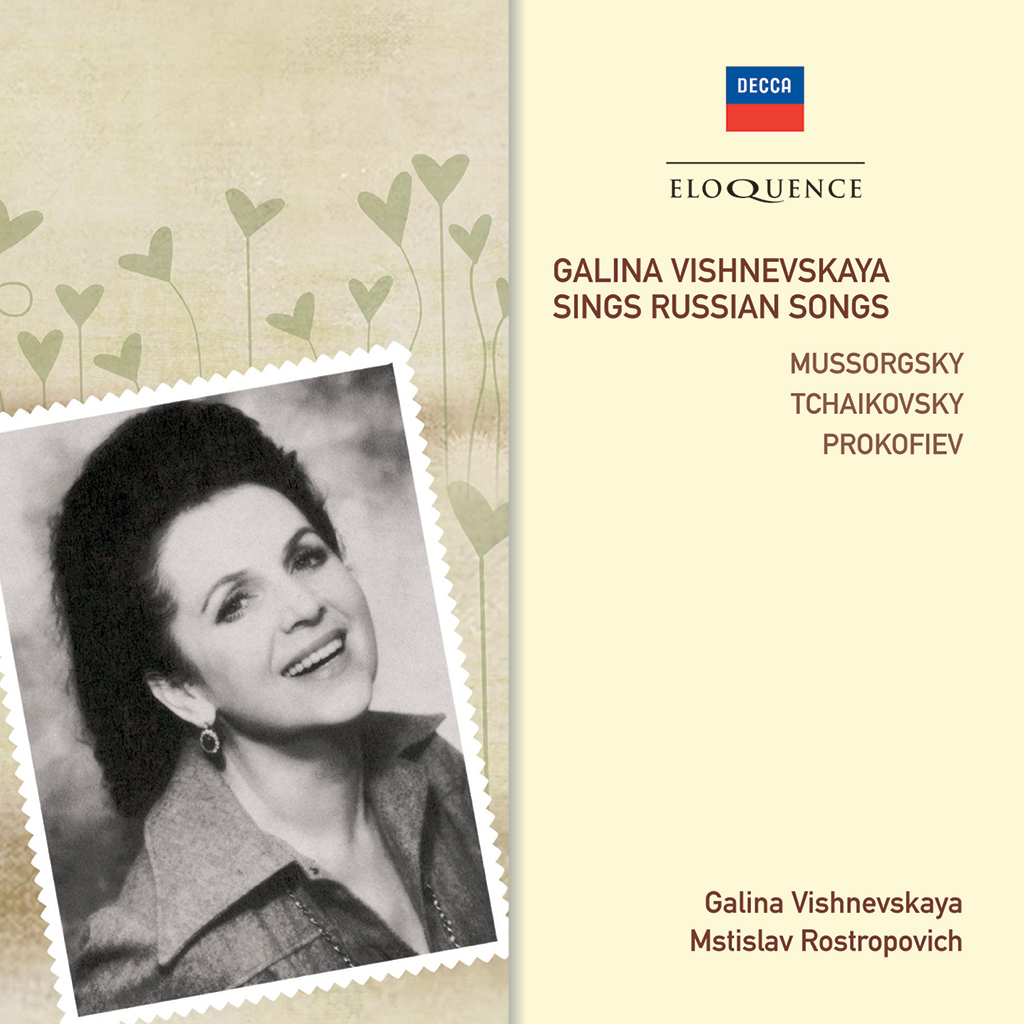
As one of the leading interpreters of Russian music, and Benjamin Britten’s soprano for some of his works, including the mighty War Requiem, it may come as a surprise to some that Galina Vishnevskaya began her professional career in 1944, singing, of all things, Viennese operettas (in Russian translation!) in the chorus of a travelling company. When the company’s leading soubrette broke her leg, Vishnevskaya graduated to lead roles, but her destiny lay elsewhere. As a girl, she had been fascinated with Tchaikovsky’s Eugene Onegin, and it was in the role of Tatiana that she made her operatic debut, in 1953, at the Bolshoi Theatre. Other roles followed, including Leonore in Fidelio (1954), Cherubino (!) in Le nozze di Figaro (1957), Madama Butterfly (1957) and Aida (1958). It was in the latter role that she made her Metropolitan Opera debut in 1962, and she added Liù (from Puccini’s Turandot) for her La Scala debut in 1964. Western critics were agog over this force of nature who had come, if not from out of nowhere, then at least from behind the Iron Curtain. They spoke of her in the same breath as Maria Callas, Renata Tebaldi, Birgit Nilsson and other giants of the era.
In 1955, she married Russian cellist Mstislav Rostropovich, and together, they braved the Cold War tensions that continued to chill life in the Soviet Union. Rostropovich was, of course, a highly gifted pianist as well and accompanied his wife in recital on the stage and in the recording studio.
In 1961, under the supervision of Mercury Living Presence’s executive producer Wilma Cozart-Fine, they recorded material for soprano and piano that was key to the soprano’s life and career. Mussorgsky’s Songs and Dances of Death she called ‘one of the most important projects of [her] career’ and wrote that the performances of this song-cycle made her feel, ‘for the first time, [her] ethnic identity as a Russian singer’.
In addition to three Tchaikovsky songs recorded at these sessions, a further six were added to her discography seven years later, these receiving their first release on CD.
MUSSORGSKY
1-4 Songs and Dances of Death
TCHAIKOVSKY
5 Net, tolko tot, kto znal (None but the lonely heart), Op. 6 No. 6
6 Ni slova, o drug moj (Not a word, beloved), Op. 6 No. 2
7 Ne ver, moy drug (Do not believe it, my friend), Op. 6 No. 1
PROKOFIEV
8-12 Five Poems of Anna Akhmatova
TCHAIKOVSKY
13 Otchevo? (Why?), Op. 6 No. 5
14 Zachem ty mne prisnilasja (Why did I dream of you?), Op. 28 No. 3
15 Sred shumnovo bala (Amid the noise of the ball), Op. 38 No. 3
16 Na nivy zhjoltyje (On the golden fields), Op. 57 No. 2
17 Serenada (Serenade), Op. 63 No. 6
18 Noch’ (Night), Op. 73 No. 2
Galina Vishnevskaya, soprano
Mstislav Rostropovich, piano
Executive Producer: Wilma Cozart-Fine (1–12)
Recording Producers: Harold Lawrence (1–12); John Mordler (13–18)
Recording Engineers: Robert Eberenz (1–12); Kenneth Wilkinson, Gordon Parry (13–18)
Recording Locations: Walthamstow Assembly Hall, July 1961 (1–12); Snape Maltings Concert Hall, Suffolk, UK, July 1968 (13–18)
‘Intensity is the keynote of these performances. Mme Vishnevskaya has a rich dramatic voice of characteristically Slavonic timbre, highly charged emotionally … she is invaluably aided by accompaniments of infinite sensibility by her husband’ (Mussorgsky, Prokofiev, Tchaikovsky: 1961 recordings) Gramophone
‘The engineers deserve special praise for the spacious recording they have given to the singer’s large voice in this first-rate recording. … I have only room to praise with equal warmth the beautifully sung and played group of Tchaikovsky’s lovely songs – still so neglected. Here Vishnevskaya has most grateful vocal lines and pours forth her voice gloriously’ (Tchaikovsky: 1968 recordings) Gramophone
